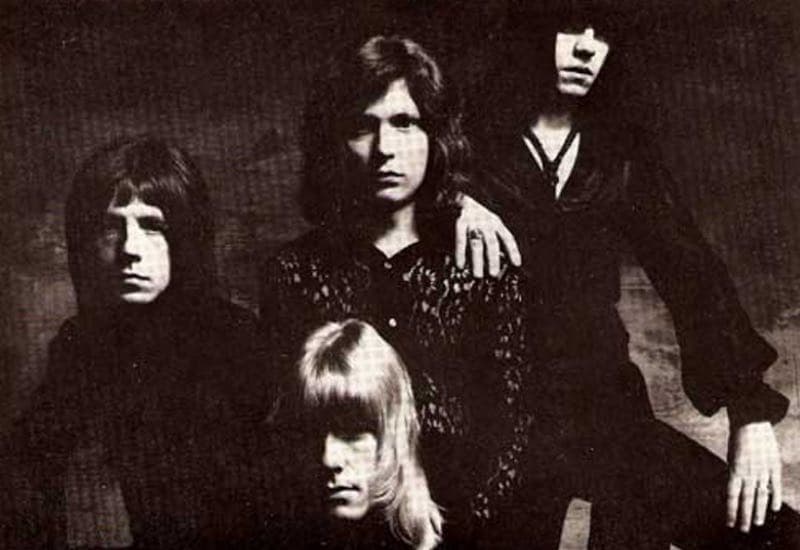
Identity Crisis — a restless echo of identity, yearning and change
When you press play on Identity Crisis, the ninth and final studio album‑title track from the British glam‑rock outfit Sweet, you’re greeted by a pulse of hard‑rock energy that belies the turmoil beneath. Released in November 1982 on the Polydor label, this album was recorded during 1980–81 but saw only very limited release (in Germany, Peru and Mexico) at a time when the band had effectively begun to wind down.
Although the track “Identity Crisis” itself was not issued as a major single to chart success, the album’s very existence speaks to a band grappling with change—both musically and personally. The album did not produce any hit singles.
For listeners looking back, “Identity Crisis” stands as a moment of transition for Sweet. After their 1970s heyday with glam‑rock explosion songs like “The Ballroom Blitz” and “Fox on the Run,” the early 1980s found them in a less certain place. The musical tides had shifted, and Sweet responded by returning to a harder‑rock sound in this record—one described as “hard rock” more than their earlier pop‑glam bursts.
The track is positioned as the opening offering on the album (track one, side one) and sets the tone: the title alone suggests unrest, a questioning of identity at a moment when the band perhaps felt less certain of its direction.
The phrase “Identity Crisis” carries weight—not simply as a catchy line, but as a psychological touchstone. In the context of Sweet, who had moved from chart‑topping glam sensations to a band experimenting with new sounds while navigating the end of their run, this track becomes a self‑portrait of introspection. The lyrics (and the attitude) hint at wanting to redefine oneself, to break free from prior labels, and to struggle with the tension between who you were, who you’ve become, and who you wish to be. For someone closing one chapter and perhaps facing another, the song resonates deeply.
There’s also a broader resonance for listeners who lived through that era—the feeling of cultural or personal dislocation: when the soundtrack you once danced to suddenly sounded different, or you yourself moved into a new season of life. In that sense, “Identity Crisis” doesn’t just capture a band’s moment—it touches a collective one.
Sweet’s path by 1982 was far removed from their 1970s pop‑glam peaks. The album “Identity Crisis” was their ninth and effectively final studio album. Recorded across 1980–81, it was not released broadly and was the product of a band already in motion toward closure. The limited release also speaks to the shrinking commercial momentum: the record did not launch major charting singles, and for many listeners, Sweet’s earlier chart triumphs had already become part of memory.
For those who remember the crackle of vinyl, the band’s sound shifting from shimmering pop hooks to heavier riffs mirrored many mid‑life transitions: what once felt youthful and unstoppable now carries the weight of experience and reflection. “Identity Crisis” is thus both a statement and a requiem of sorts.
Listening now—whether in a quiet room or with memories of evenings when the record player spun late into the night—you’re reminded of the power of change. The song stands not at the climax of success, but at the edge of transition. And that edge often holds the richest feeling: the mixture of nostalgia for what was and curiosity for what may yet come.
For someone attuned to the deeper currents in music, “Identity Crisis” offers more than riffs and vocals. It offers space for memory. The echo of the guitar, the vocal tone, the slight rawness of production—all convey: this is not a single aimed at topping charts, but a band speaking from a place of asking, “Who are we now?” That question, in its humility and honesty, becomes timeless.
And so when the final note fades, you’re left with the soft, lingering sensation of change—not dramatic, not triumphant, but real. In that quiet after the rock fades, you hear the truth: identity is never static, and sometimes the greatest song is the one that simply meets you exactly where you’ve arrived.